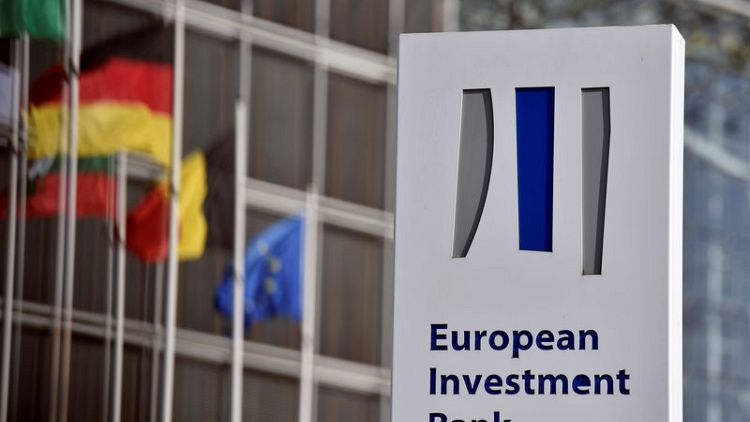By Francesco Guarascio
BRUSSELS (Reuters) - The European Investment Bank, the EU's lending institution, cut lending by nearly 20 percent last year and plans to keep financing at a similar level in 2019 at around 60 billion euros (52 billion pounds), the EIB president said on Tuesday.
The bank is also preparing for all Brexit outcomes, including Britain's departure without a deal in March. Plans are in place for the other 27 EU states to plug the capital gap caused by Britain's departure, even in the event of a no-deal Brexit that would create a sudden shortfall without any transition period, Werner Hoyer told a news conference.
Hoyer said 2018's decrease in lending was due to improved economic conditions in the EU which allowed the bank to invest less and concentrate on riskier and more profitable projects.
Despite signals of a slowdown in several EU economies, the bank would keep a similar level of funding this year.
Britain's departure from the bloc will deprive the bank of one of its largest shareholders and of 3.5 billion euros of British paid-in capital and 35 billion euros of UK callable capital which are key for the bank to maintain its triple-A rating and low funding costs.
The gap in the paid-in capital will be covered with the bank's reserves, Hoyer said, while the hole in the callable capital would be filled proportionally by the 27 remaining governments of the EU.
A deal on filling the gap has been reached at technical level to address the shortfall but it needs to be formalised by EU finance ministers.
Hoyer said the formal deal would be sealed once there is clarity on the Brexit process.
Agreement among EU states has been hampered by divisions about the future composition of the shareholding, with Poland pushing for a bigger share - which would come with more powers.
The provisional compromise reached envisages a modest increase for Poland and smaller capital rises for Romania, and perhaps for Luxembourg.
(Reporting by Francesco Guarascio; Editing by Alexandra Hudson)



